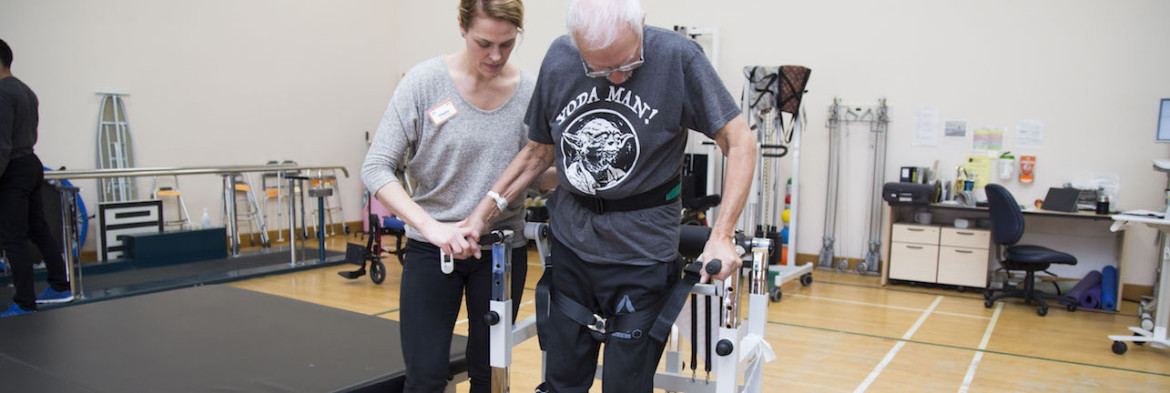The Collaborative Spasticity Program (CSP) is a multidisciplinary and multimodal program (comprised of orthotists, physician specialists in Rehabilitation Medicine, and physiotherapists) who meet to set and address realistic functional goals for patients with spasticity. The program is based in the Fisher Building of the Queen Alexandra Centre alongside the Orthotics, Prosthetics, and Seating departments.
The program primarily caters to adult patients experiencing spasticity caused by stroke, cerebral palsy, multiple sclerosis, acquired brain injury or spinal cord injury. We do not cure these conditions, but collaborate to address the negative functional effects of spasticity as much as feasible within the constraints of the disability.
The program examines the potential of combining 3 modalities: Botulinum toxin, physiotherapy, and orthotic/ bracing towards achieving realistic functional goals for patients who present with spasticity; treatment goals are individualized and specific.
For patients who are either ambulatory or have the potential of becoming ambulatory, the overarching goal is to:
- Improve safe ambulation of our patients to enhance the possibility of achieving improved cardiovascular fitness and overall health.
For non-ambulatory patients the combination of Botulinum toxin, physiotherapy, and orthotics can be effective in addressing pain caused by spasticity in the arm and hand. For wheelchair bound patients with spasticity Botulinum toxin may be helpful in assisting difficult seating issues.
General Information on Collaborative Spasticity Program
Queen Alexandra Centre
Fisher Building
Phone: 250-519-6732

